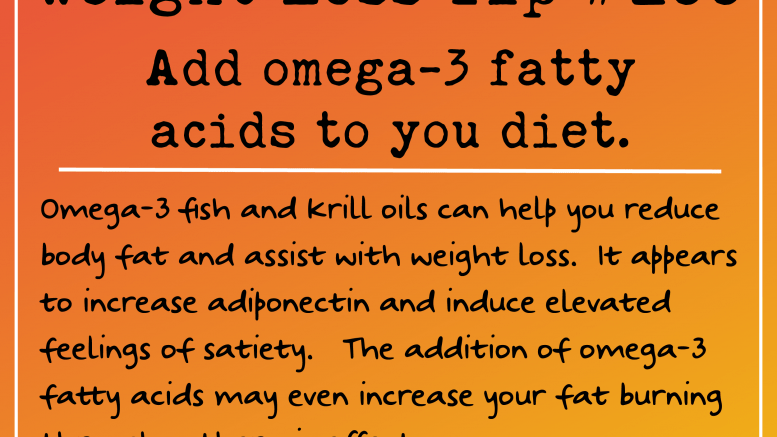Omega-3: An Appetite Suppressant?
There is no such thing as a sure thing or a magic bullet when it comes to weight loss. Around the globe, obesity and obesity-related illnesses represent a major public health challenge. The prognosis for citizens of the United States is exceptionally poor. Unfortunately, There is no sunrise on the horizon and the prognosis is getting worse for children, adolescents, and adults alike across the United States. Bulging waistlines represent a major risk to the future prosperity and the only cure is to make life long changes in our activity and diet. There is something you can do to help with weight loss and suppressing your appetite. Omega-3 fish oil supplementation seems to be a safe and appears effective option that can help with this endeavor.
Although this is not the purpose of the article. We know that omega-3 fatty acid intake throwing food or supplements will lower LDL and raise HDL. This is good for heart health because, in general, higher HDL levels lower your risk for heart disease.
Does omega-3 fatty acid supplementation increase weight loss?
Omega-3 fish oil supplementation and intake in omega-3 fatty acid foods have been shown to be effective for promoting weight loss. It also has been shown to decrease not only fat loss but also the loss of belly fat loss when added to exercise[1],[2]. Although the studies focused on omega-3s and their effect on the lipid profiles of patients, the studies pleasantly found that they appear to assist in fat loss and body composition changes. In particular, they found that belly fat was lost. This is important because belly fat is the fact that increases your risk of diabetes type 2 and heart disease[3],[4]. Other studies also showed that seafood or fish oil in a nutritionally balanced calorie-restricted diet appears to boost weight loss potential[5],[6],[7],[8],[9]. These studies show that obese subjects have a lower omega-3 and seafood consumption and on the weight loss studies, they found that subjects who supplemented with omega-3s lost an average 1 Kg or 2.2 pounds more over 4 weeks. These studies indicate that omega-3s do help with weight loss but, in particular, they seem to help loose the most important weight – belly fat.
What is the mechanism?
- Dietary omega-3s reduces body fat mass and stimulates lipid oxidation in healthy adults[10].
- Omega-3 supplementation resulted in higher levels of adiponectin which suppresses appetite[11].
- Omega-3 fatty acid intake increased total thermic effect of food eaten so in other words, increase the energy required to use the food eaten[12]. Increased energy equals an increase in fat burned.
- Omega-3 fatty acids modulate postprandial satiety in overweight and obese volunteers during weight loss[13].
The bottom line: Omega-3 fish and krill oils can help you reduce body fat and assist with weight loss. It appears to increase adiponectin and induce elevated feelings of satiety. The addition of omega-3 fatty acids may even increase your fat burning through a thermic effect. I recommend that you add it to your diet.
Recommendations:
I recently started Omega-3s for appetite suppressant side effects. I chose Krill Oil because it gives you fewer burps. Omega-3 fatty acids found in fish oil or krill oil supplements seem to offer a lot of health benefits outside of body composition so when you include the obesity reduction benefits, I recommend it wholeheartedly. Omega-3s appear to be a can’t miss supplement.









Be the first to comment on "Weight loss tip: Add omega-3 Fatty Acids"